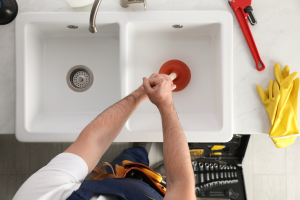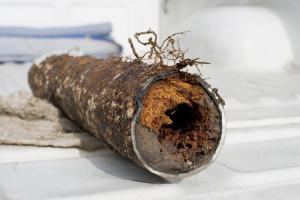How to Prevent Clogged Drains: Practical Habits That Work
Clogged drains can disrupt your day, create unpleasant smells, and even lead to costly plumbing repairs. Most of the time, how to prevent clogged drains comes down to stopping blockages before they start, as they often build up gradually from things like grease, soap residue, hair, or foreign objects. The good news? With some simple changes in routine, you can avoid many of these issues altogether.
If you’re wondering how to prevent blocked drains and avoid emergency plumbing calls, the key lies in building a few practical habits into your daily routine.
Here’s how you can keep your drains clear and your plumbing system running smoothly.
1. Catch Debris Before It Enters the Drain
One of the most effective ways to prevent clogs is by using drain covers or mesh strainers. These inexpensive tools sit on top of your drains and trap hair, food scraps, or soap chunks before they slip down into the pipes. Place them in kitchen sinks, showers, and bathroom sinks, and clean them out regularly to keep water flowing freely.

2. Never Pour Grease Down the Sink
Rinsing cooking grease or oil down the drain with hot water might seem harmless, but once it cools, it solidifies and clings to the pipe walls. Over time, this buildup thickens and can eventually block water flow completely.
A better option is to pour grease into a heat-safe container, let it cool and harden, then dispose of it in the trash. Before rinsing cookware, use a paper towel to soak up any leftover grease to prevent it from going down the drain.
3. Flush Drains with Hot Water
After using the sink, especially for washing dishes or brushing teeth, flush the drain with hot water for 20–30 seconds. This helps move small particles and soap residues along before they settle inside the pipe.
In the kitchen, doing this can help prevent grease and oils from solidifying, while in the bathroom, it helps wash away product buildup.
4. Only Flush Toilet Paper
Toilets are not built to handle anything other than human waste and toilet paper. Wipes labeled “flushable,” feminine hygiene products, cotton balls, and paper towels don’t break down properly and often lead to toilet or sewer line clogs.
To keep your plumbing system healthy, make sure everyone in your household knows to dispose of these items in the trash instead.
5. How to Prevent Clogged Drains from Hair Buildup
Hair is one of the biggest reasons bathroom drains clog, especially in showers and bathtubs. If you notice slow drainage, hair is likely the cause. To prevent this, consider brushing your hair before showering to minimize shedding and using a hair catcher in the drain. Clean it out often, especially if multiple people use the same shower.
6. Use a Natural Drain Cleaner Monthly
Skip the harsh chemical cleaners and go for a natural solution to maintain clean drains. A monthly flush using baking soda and vinegar, followed by boiling water, can help dissolve residue, eliminate odors, and reduce the risk of buildup inside your pipes

7. Be Careful with the Garbage Disposal
Garbage disposals are helpful, but they aren’t made to handle everything. Avoid putting fibrous vegetables (like celery or onion skins), coffee grounds, pasta, bones, or eggshells down the disposal. These items tend to expand, wrap around the blades, or form stubborn clogs in the pipes.
8. Schedule Routine Drain Maintenance
Despite your best efforts, residue can still accumulate over time, particularly in older pipes. Scheduling professional drain inspections or cleanings every one to two years can catch small problems early and prevent major clogs down the line.
Final Thoughts
If you’re looking for a long-term solution on how to prevent clogged drains, it starts with consistent maintenance and small daily choices. By being mindful of what goes down your sinks and toilets, using screens, and flushing drains regularly, you can reduce the risk of blockages and protect your home’s plumbing system.
If your drains are already showing signs of trouble, like slow drainage, bad smells, or gurgling, consider calling a professional before the issue gets worse. Call (207) 814-8908 today to schedule your service with a licensed drain professional.
Also Read:
